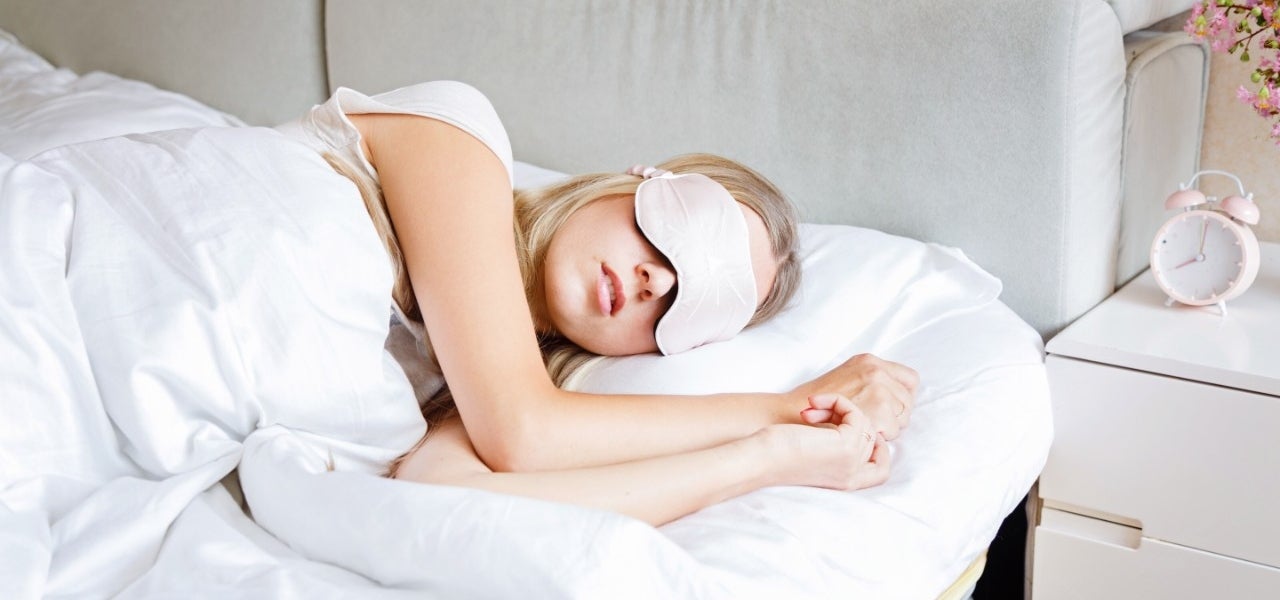Thanks to the invention of modern technologies, and the “always connected” culture of the world, we have sacrificed sleep to stay connected. In a recent study conducted by the CDC, they found that 1 in 3 adults (35%) don’t get the minimum recommended 7 hours of sleep each night1. This lack of sleep can lead to many physical problems ranging from increased stress, to problems with cognition and memory. Let’s look at why sleep is so important and what steps we can follow to make sure we are enjoying all the benefits offered from good sleeping habits.
Why sleep?
Sleep allows our bodies and minds time to recharge after a long day of activities. During the day we are constantly gathering information and processing experiences. While we sleep, our brains sort through the information and experiences we have had throughout the day and transfers them from our short-term memory to our more permanent long-term memory. A lack of sleep limits the time our brains have to work on sorting and consolidating information. When we dismiss our need for sleep it can lead to problems with our cognitive function and working memory.
Why Is Sleep Important?
Lack of sleep affects multiple areas of the brain that are involved in memory. It also hinders our ability to recall memories and information we learned months or years ago. One study found that losing just two hours of sleep per night for 14 nights left the study participants with impaired performance on tasks involving attention and short-term memory. Additionally, it impairs our ability to learn new information and to create new memories2.
Try and think of a time when you were sleep deprived. Remember how hard it was to recall simple pieces of information such as where you left your keys or who you were supposed to meet up with for lunch that day? Or have you even been driving along the highway and suddenly, you can’t remember the last five seconds of driving? These are all signs of not getting enough sleep. It’s our brains way of telling us that we need more time to rejuvenate and restore each night.

How much sleep do I need?
The recommended amount of sleep varies depending on our age and can also vary from person to person. When we are younger, we require more sleep so our bodies can support the rapid mental and physical development that takes place. As we age, and our development slows down, our bodies require less sleep to function at its best. The CDC recommendation for infants is 12-16 hours of sleep every 24 hours (including naps), while adults 18 and over need 7-8 hours of restful sleep. When we get the right amount of sleep, we are more likely to enjoy the benefits associated with better sleep.
Benefits of sleep
New research shows that while we sleep, our brains actually flush out toxic chemicals at a higher rate as opposed to when we are awake. This is because when we sleep, the space between the cells in the brain expands significantly, which helps with cleaning out the buildup of unwanted junk from our brains. “This may have broader implications for multiple neurological disorders” and shows a greater need for sufficient sleep each night3. Sleep also helps us be more creative, helps improve our mood, and helps with our long-term and short-term memory. With all of these benefits, it’s important we find ways to maintain good sleeping habits. One way to do this is by focusing on our sleep hygiene.
Sleep Hygiene Tips
Sleep hygiene refers to the habits and practices you employ each night to have quality nighttime sleep and full daytime alertness4. There are many ways to improve the quality of sleep you are getting to help your body and mind get the rest they need. Below are just a few ideas you can incorporate into your nightly routine to improve your sleep hygiene and improve the quality of sleep you get each night:

-
Get regular exercise- Those who exercise regularly sleep better at night and feel less sleepy during the day.
-
Minimize light- At least 30 mins before you go to bed, turn off your TV and phone. Heavy exposure to light, especially blue light, can affect quality of sleep and increase the time it takes you to fall asleep.
-
Develop a routine- Going to bed at the same time each night and having a pre-sleep routine allows your body to prepare for sleep more effectively and keeps your body’s internal clock in sync.
-
No caffeine before bed- Don’t eat or drink caffeinated products four to six hours before bed as this stimulant may cause sleep problems.
-
Winding Down- Don’t let the stresses of work, family and school keep you from getting a good night’s rest; try reading a book or meditating before you go to bed to help you wind down, de-stress, and relax.
-
Epoch Lavender Essential Oil-In the evening, before going to bed, try dabbing some of our Epoch Lavender Essential Oil on your pillow to help calm and soothe.
Along with the tips above, we recommend trying a few of our Pharmanex products to help with sleep, stress, and brain function:
NightTime Fromula- A dietary supplement designed for the adult population to provide dietary support for a normal, restful night’s sleep.
Cortitrol- Intended for adults who are getting less than 8 hours of sleep every night or who generally feel run down, lack mental focus and are performing at sub-optimal levels.
Marine Omega- Even though it might not help with sleep, Marine Omega is conveniently formulated to provide an optimal level of omega-3 fatty acids important for supporting normal brain function and wellness.
Now that you have the facts about the benefits of getting the right amount of sleep, it’s up to you to figure out what works best for you. So, how do YOU plan to incorporate these tips for a better night's sleep?
References:
(1) https://www.cdc.gov/media/releases/2016/p0215-enough-sleep.html
(2) https://www.ncbi.nlm.nih.gov/pmc/articles/PMC2656292/
(3) https://www.nih.gov/news-events/news-releases/brain-may-flush-out-toxins-during-sleep
(4) https://www.sleepfoundation.org/sleep-topics/sleep-hygiene
Additional Resources:
- https://www.nhlbi.nih.gov/health-topics/all-publications-and-resources/your-guide-healthy-sleep
- http://healthysleep.med.harvard.edu/interactive/timeline
- https://www.sleep.org/articles/how-losing-sleep-affects-your-body-mind/
- https://www.sleepfoundation.org/excessivesleepiness/content/how-much-sleep-do-babies-and-kids-need
- https://sleepfoundation.org/excessivesleepiness/content/why-do-we-need-sleep
- https://www.forbes.com/sites/alicegwalton/2016/12/09/7-ways-sleep-affects-the-brain-and-what-happens-if-it-doesnt-get-enough/#3a6cd1f0753c
